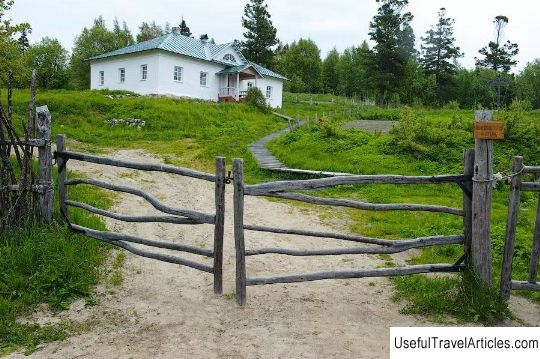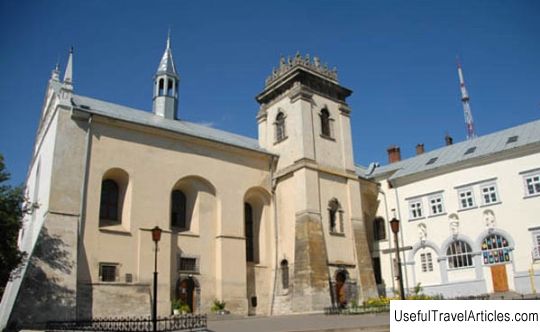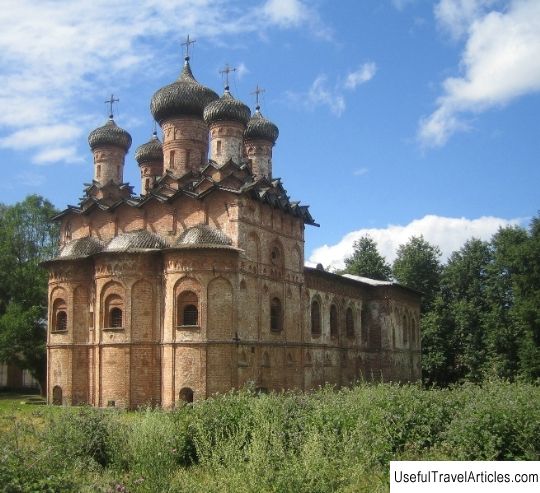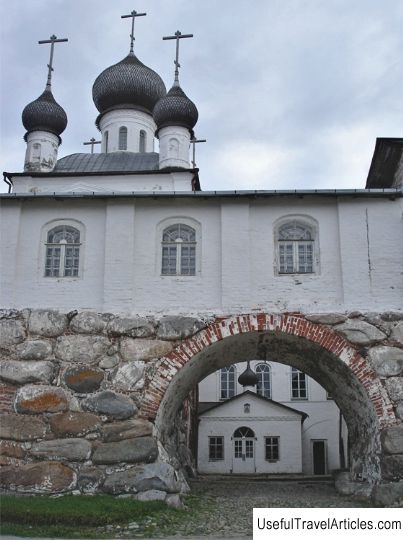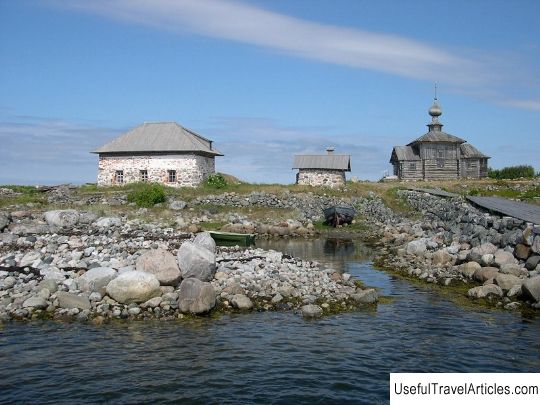Negotiating stone description and photo - Russia - North-West: Solovetsky Islands
Rating: 7,8/10 (1418 votes) 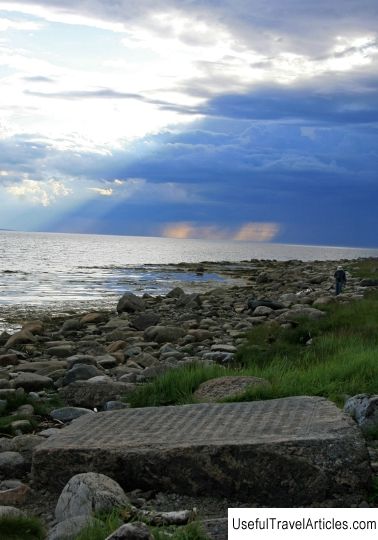
Negotiating stone description and photo - Russia - Northwest: Solovetsky Islands. Detailed information about the attraction. Description, photos and a map showing the nearest significant objects. Photo and descriptionThe Negotiation Stone is a famous and unique monument of its kind, which marks the memorial place where negotiations were held in the summer of June 22, 1855 between an English officer and the chief abbot of the Solovetsky Monastery in the person of Archimandrite Alexander. The stone is located two kilometers from the village, right on the shores of the White Sea on the road to the rocky cape Pechak. The monument was erected the following year after the conversation took place, i.e. in 1856. The negotiation stone is a rectangular stone slab with an engraved inscription on the processed upper part. The stone was made in the monastery's stonecutting workshop. The inscription on the negotiating stone tells about the events that took place here: at the time when the war of England began, France, Sardinia and Turkey with Russia, on the site of the current location of the stone, a conversation between Archimandrite Alexander and the English officer Anton took place. The enemy squadrons were stationed not far from the coast - they demanded bulls from the monastery. After the negotiations, which ended very happily for the monastery, the abbot Alexander returned to his monastery at lunchtime and began to serve molebens and liturgy in the Assumption Cathedral - the end of the service was only at four o'clock. It is known that on that week, when the negotiations were held, a particularly strict fast was held, so the Lord did not allow the enemy to invade the monastery lands, and the naval squadrons retreated. During 1855, the ships of the allied squadron approached Solovki six times, although they did not take any action to carry out the landing, but nevertheless they noticed the unrestricted Bolshoi Zayatsky Island as a stronghold. The very first time British troops appeared near the extended walls of the monastery in the summer of June 15 - it was then that the screw battleship of the largest tonnage anchored a few miles from the large impregnable fortress wall. A small group, consisting of officers and sailors, landed on the shore of Bolshoy Zayatsky Island. After disembarking, the British killed the rams belonging to the monastery and dragged the loot to the ship, and also became interested in the number and quantity of weapons of the monastery. In addition, the uninvited guests demanded that bulls be delivered to their ship, or they themselves would take all the cattle by force. An English officer ordered to convey a message to the abbot of the monastery that a few days later they would return for their prey, and refusal will not be accepted. The note was written in broken Russian. The inhabitants of the village concluded that the affairs of the foreign aggressors were very bad in terms of food. In addition, having taken the rams, they did not pay the monastery. Three days later, the British again moored to the island for meat. But, having landed on the island, they received a categorical refusal and ordered to call the chief of the monastery for negotiations. Archimandrite Alexander accepted the challenge and came to negotiations. The English officer desperately demanded oxen from the archimandrite, to which the abbot said that there were none. Then the British began to ask for cows, but they were also refused, because the monks were fed with cow's milk. Threats began to come from the officer - he said that in a couple of weeks a strong fleet would arrive here and then the monastery would definitely regret its decision. But even the threats did not work on Father Alexander, moreover, he replied that if at least someone lands on the island, he will order that all the cows be shot and thrown into the sea, where no one will ever find animals. The negotiations ended on this note. In memory of this event, a Negotiation Stone was erected on the boulder shore of the sea. The next day, the enemy ships withdrew, but nevertheless dragged on board the firewood that had been accumulated by the thrifty monks. It should be noted that by the middle of the 19th century the monastery had no weapons and even a small army. High strong walls and a complex harbor, which were built by the hard work of the Russian people, forced the British troops to retreat.     We also recommend reading Church of St. Alexander Nevsky (Sv. Aleksandro Neviskio cerkve) description and photos - Lithuania: Vilnius Topic: Negotiating stone description and photo - Russia - North-West: Solovetsky Islands. |
